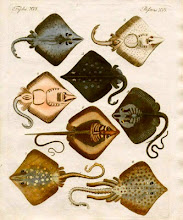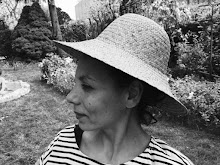FAREWELL
I speak to you, my son,
after years of silence. Verona is no more.
I crumbled its brickdust in my fingers. That is what remains
Of the great love of native cities.
I hear your laughter in the garden. And the mad spring's
scent comes toward me across the wet leaves.
Toward me, who, not believing in any saving power,
outlived the others and myself as well.
Do you know how it is when one wakes
at night suddenly and asks,
listening to the pounding heart: what more do you want,
insatiable? Spring, a nightingale is singing.
Children's laughter in the garden. A first clear star
above a foam of buds on the hills
and a light song returns to my lips
and I am young again, as before, in Verona.
To reject. To reject everything. That is not it.
It will neither resurrect the past nor return me to it.
Sleep, Romeo, Juliet, on your headrest of stone feathers.
I won't raise your bound hands from the ashes.
Let the cat visit the deserted cathedrals,
its pupil flashing on the altars. Let an owl
nest on the dead ogive.
In the white noon among the rubble, let the snake
warm itself on leaves of coltsfoot and in the silence
let him coil in lustrous circles around useless gold.
I won't return. I want to know what's left
after rejecting youth and spring,
after rejecting those red lips
from which heat seemed to flow
on sultry nights.
After songs and the scent of wine,
oaths and laments, diamond nights,
and the cry of gulls with the black sun
glaring behind them.
From life, from the apple cut by the flaming knife,
what grain will be saved.
My son, believe me, nothing remains.
Only adult toil,
the furrow of fate in the palm.
Only toil,
Nothing more.
Translators' note: "Farewell" was written in 1945 in Kraków, to which the author fled after the almost total destruction of Warsaw by the German army.
ACCOUNT
The history of my stupidity would fill many volumes.
Some would be devoted to acting against consciousness,
Like the flight of a moth which, had it known,
Would have tended nevertheless toward the candle's flame.
Others would deal with ways to silence anxiety,
The little whisper which, though it is a warning, is ignored.
I would deal separately with satisfaction and pride,
The time when I was among their adherents
Who strut victoriously, unsuspecting.
But all of them would have one subject, desire,
If only my own—but no, not at all; alas,
I was driven because I wanted to be like others.
I was afraid of what was wild and indecent in me.
The history of my stupidity will not be written.
For one thing, it's late. And the truth is laborious.
AND THE CITY STOOD IN ITS BRIGHTNESS
(audio only)
http://www.poets.org/viewmedia.php/prmMID/15921
Subscribe to:
Post Comments (Atom)




1 comment:
I have read both the poems. The first one is very moving and depicts the barren state of mind. Recently I wrote a tribute to Milosz in my blogs. Here it is
http://p-g-r-nair.sulekha.com/blog/post/2011/08/celebrating-the-centennial-of-czeslaw-milosz.htm
PGR Nair
Post a Comment